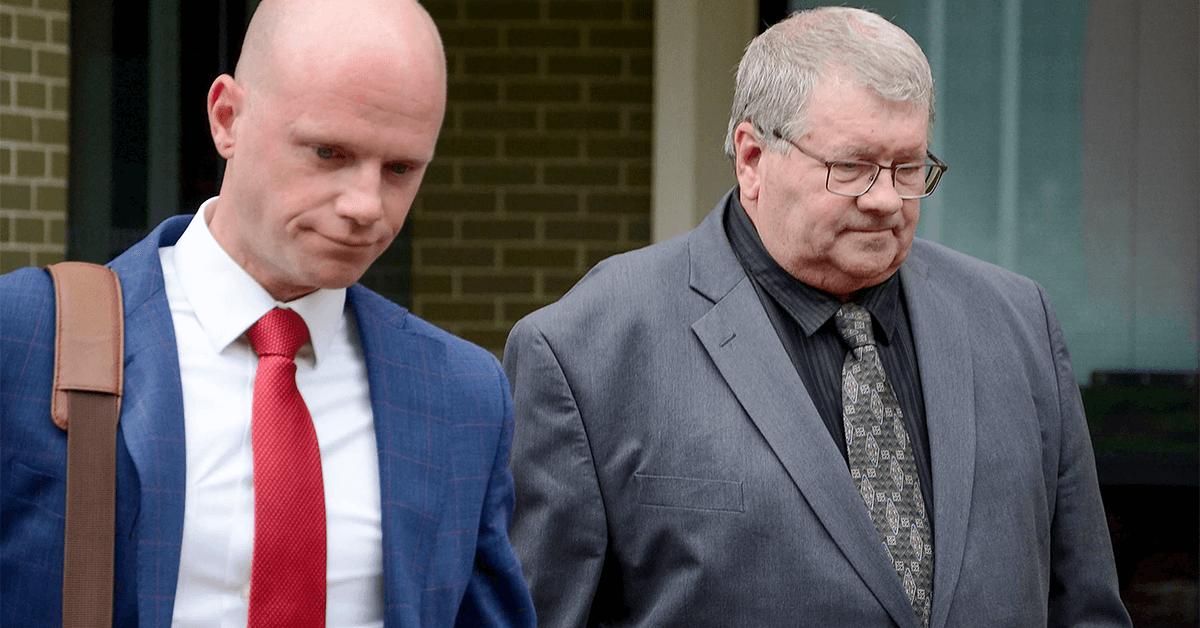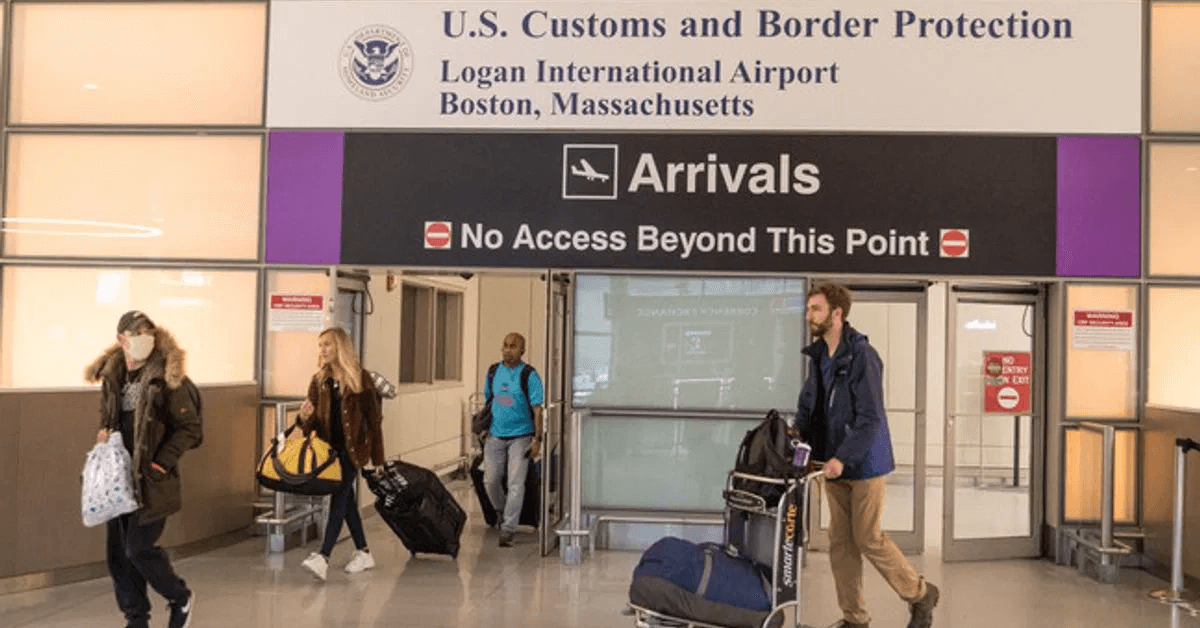No Early Release for Rick Johnson in Michigan Cannabis Licensing Scandal

Former Michigan House Speaker Rick Johnson will continue serving his 55-month prison sentence without any reduction or early release, as ruled by U.S. District Judge Jane Beckering. Johnson, who was implicated in a major public corruption scandal involving the state's cannabis industry, sought to have his sentence shortened based on changes to federal sentencing guidelines. However, the judge determined that Johnson had already benefited from these guidelines at the time of his sentencing and did not merit further leniency.
Johnson, a 71-year-old Republican from LeRoy, has been incarcerated at a minimum-security federal prison camp in Duluth, Minnesota, since December. He requested that his sentence be reduced to 41 months, with the remainder to be served under home confinement starting in March 2025. This plea was denied, with Judge Beckering emphasizing that the relief Johnson sought was already granted when he was initially sentenced.
This case stems from Johnson's tenure as chairman of the state's medical marijuana licensing board from May 2017 to April 2019. During this period, Johnson accepted over $110,000 in bribes from cannabis industry lobbyists and a businessman, seeking to influence the licensing process in favor of certain businesses. His corrupt practices, which Judge Beckering described as an "unfettered abuse of power," involved taking cash payments, enjoying complimentary meals, and engaging in illicit activities, including liaisons with a sex worker.
The scandal represents one of the largest instances of public corruption in Michigan's capital in the last 30 years. In addition to Johnson, other key figures involved received prison sentences: businessman John Dawood Dalaly received 28 months, while lobbyists Brian Pierce and Vince Brown were sentenced to two years and 20 months, respectively.
Johnson's projected release date remains September 2027, maintaining the original terms of his sentence.
Two Michigan Men Arrested with Cannabis in West Virginia Traffic Stop

Two individuals from Michigan were apprehended in Morgantown, West Virginia, following the discovery of illegal substances in their vehicle during a nighttime traffic stop. This incident underscores not only the ongoing issues of drug transportation across state lines but also highlights the likely Michigan origin of the cannabis found.
The event unfolded in the early hours of April 8th, when Deputy Noah Thompson of Monongalia County noticed a Chrysler minivan, bearing Pennsylvania license plates, navigating Chestnut Street without its taillights activated. Upon halting the vehicle around 12:30 a.m., Deputy Thompson identified the occupants as Quantrez Gibson, 26, from Sterling Heights, Michigan, and Deante B. Hurt, 27, from Detroit, Michigan.
Further investigation led to a probable cause search of the minivan, which unearthed more than 40 oxycodone pills alongside over 30 packages of cannabis. Given Michigan's status as a state with legalized cannabis, the origin of the cannabis seized is believed to likely be Michigan, pointing to a cross-state transportation attempt.
In addition to the drugs, Gibson and Hurt were found in possession of $1,600, primarily in $20 and $100 denominations, and several cell phones, hinting at the broader scope of their activities.
Deante B. Hurt is no stranger to the legal system in Monongalia County, having faced multiple arrests previously. Notably, in September 2023, he was indicted by a grand jury on charges including device fraud, grand larceny, and conspiracy. Subsequent charges against him in December 2023 and March 2024 related to possession with intent and conspiracy to deliver controlled substances, from which he was released upon posting substantial bonds totaling $200,000.
Following their latest encounter with the law, both Gibson and Hurt were arraigned in Monongalia County Magistrate Court, securing their release on $50,000 bonds each. They are slated for preliminary hearings on April 18th, as the legal process continues to unfold.
Michigan Woman Arrested for Attempting to Smuggle Cannabis from Boston to London

In a striking incident at Boston Logan International Airport, a woman from Michigan found herself embroiled in a legal quandary following her attempt to smuggle a substantial amount of cannabis to London. Nalexus Palmer, 28, was arrested and held on bail after Massachusetts State Police intercepted her with 74 pounds of vacuum-sealed cannabis, valued at nearly $400,000, intended for illicit distribution in the U.K.
Palmer, who had traveled from Detroit to Boston with the goal of flying to London, faced charges for trafficking cannabis weighing between 50 and 100 pounds. The arrest took place on a Saturday night, shortly after U.S. Customs and Border Protection agents flagged the suspicious cargo. Embedded within two large suitcases filled with the drug were Apple AirTags, presumably used to track the shipment's journey across borders.
The narrative unfolded as Palmer claimed ignorance of the suitcase's contents, alleging that an unidentified woman had delivered them to her, following arrangements made by an unnamed man. This individual, whom Palmer stated she had met four years prior in Atlanta, reportedly facilitated monetary transactions through Zelle and Cash App for unspecified purposes, promising further compensation upon her arrival in London.
This incident underscores the stark legal contrasts in cannabis regulation between jurisdictions. While possession of cannabis is legal in both Michigan and Massachusetts, its trafficking, especially across international borders, remains strictly prohibited. Suffolk District Attorney Kevin Hayden emphasized this distinction, warning against the significant risks involved in transporting large quantities of cannabis across state and international lines.
The court has since set Palmer's bail at $3,000, imposing conditions that include the surrender of her passport and a restriction from entering Logan Airport unless for legitimate travel. A scheduled probable cause hearing on May 24th awaits further developments in this case.
This case vividly illustrates the ongoing challenges and complexities surrounding cannabis laws, highlighting the severe consequences of trafficking attempts. Despite varying degrees of legalization within the United States, the international transportation of cannabis continues to be met with stringent enforcement and severe penalties.
Investor Drama Jeopardizes 10-Acre Cannabis Cultivation Venture in Michigan

In a significant legal battle unfolding in Michigan, entrepreneur Dan Reinhold has initiated a $5 million lawsuit against his former business partner, Marc Steimer. The lawsuit accuses Steimer of derailing a promising cannabis cultivation venture in Chelsea, near Ann Arbor, by diverting critical investment to a competing operation in Denver, Colorado.
Filed in a Michigan federal court, the legal dispute centers around Reinhold's plans to acquire and develop a 10-acre cannabis grow facility. Reinhold, new to the cannabis industry, had enlisted the expertise of Steimer and his consultancy firm, The High Consultants LLC (THC), to navigate the burgeoning market. In the early stages, their partnership sought to capitalize on the legalization of recreational cannabis use in Michigan, which began in January 2019. Despite exploring several potential grow sites throughout the year, it wasn't until 2022 that the pair decided to jointly pursue a cultivation operation in Chelsea.
The Chelsea property in question featured a 4,100-square-foot building designed for cannabis cultivation, equipped with three licenses allowing the growth of up to 1,000 plants for both medical and recreational use. Additionally, the facility had the capacity for a 6,000-square-foot expansion. Reinhold managed to secure interest from investors Brian and Steven Doyle, who were prepared to invest $1 million in the project, even negotiating the purchase price of the property down from $900,000 to $700,000.
However, complications arose when Steimer expressed a desire to introduce the Doyles to an investment opportunity in Colorado, involving a $1.5 million stake in a Denver dispensary, OG Medicinals. Despite Reinhold's requests to delay any discussion of the Colorado project until after the completion of the Chelsea deal, Steimer went behind Reinhold's back, convincing the Doyles to withdraw their investment from the Chelsea project and redirect it towards the Denver operation.
The lawsuit alleges that Steimer's actions were not only fraudulent but also oppressively detrimental to Reinhold's business interests. As a direct result of Steimer's interference, Reinhold claims his venture has incurred substantial financial damages, estimated between $2.5 million and $5 million in lost profits. These figures are supported by an expert in the Michigan cannabis industry, who will testify regarding the financial impact on Reinhold's venture.
This case underscores the volatile nature of the cannabis industry, where partnerships can quickly turn into rivalries, and investment opportunities are fiercely contested. As the legal proceedings unfold, the outcome will likely resonate through the Michigan cannabis business community, highlighting the importance of trust and transparency in collaborative ventures.
Better Made Takes Legal Stand Against Cannabis Companies Over Trademark Misuse

Better Made Snack Foods Inc., a staple in the metro Detroit snack food market since 1930, known for its potato chips and related products, has initiated legal action against multiple Michigan-based cannabis companies. The lawsuit, filed in the U.S. District Court for the Eastern District of Michigan, accuses these entities of unauthorized use of the Better Made trademark on their cannabis flower and edible product packaging.
The legal complaint highlights that Better Made did not grant permission to these companies to leverage its trademark, thereby alleging violations of both federal and state copyright laws. The defendants include a wide array of cannabis businesses, ranging from growers and retailers to distributors. In total, more than thirty companies are implicated in the lawsuit for infringing upon Better Made's intellectual property rights.
Companies named in the lawsuit are: IVP Holding, LLC, House Brands Distro, High Society 2, Zen Republic, LLC, Olswell Cannabis Company, Olswell-Adrian, The Earle of Smoke II, LLC, House of Dank Grand Rapids, Detroit Herbal Center, The High Club, Royal Highness, LLC, Herbology Cannabis Co., MJC Development, LLC, Cannabis King, Cafiero Family Ventures, LLC, King of Budz Ferndale, Carmen Selena Investments, LLC, Royal Highness PC3 LLC, Flower Bowl River Rouge, Greencare Provisioning LLC, Mid Ventures, LLC, Greencare Provisioning Center, Inkster Microbusiness LLC, Nar Inkster, Indica LLC, Sticky Muskegon, Lucky Pablo, Inc., Lucky's Cannabis Company, Pure Buds, LLC, Quest Cannabis, NBT Group LLC, URB Cannabis, Parom Holdings, LLC, and URB Cannabis Company.
The crux of Better Made's grievance stems from the discovery in August 2023 of the defendants' unlicensed use of its trademark, observed in online platforms and physical product packaging. Despite Better Made's efforts to communicate its concerns through a formal letter and multiple emails sent on August 15th, 2023, urging an immediate halt to these copyright violations, the plea seemingly went unanswered. Although one defendant purportedly ceased the use of the trademark on their website following this communication, reports of continued misuse across other mediums prompted further action.
Notably, customers alerted Better Made to ongoing trademark infringements in December 2023 and January 2024. Subsequent attempts by Better Made's legal counsel to resolve the matter through discussions with a representative lawyer for the defendants yielded promises of rectification that were ultimately unfulfilled, leading to the persistence of the issue.
In seeking redress through the courts, Better Made demands financial compensation and a judicial order to permanently prohibit the defendants from employing the Better Made trademark in any capacity, including within their websites, advertising campaigns, packaging, and manufacturing processes. This legal move underscores the snack food company's determination to protect its brand integrity and copyright ownership against unauthorized exploitation.
The Impact of Legalization on Michigan's Underground Cannabis Dealers

In Michigan, the landscape of cannabis sales has undergone a profound transformation following the legalization of the substance for adult use. The approval by voters in November 2018 to legalize cannabis marked a significant shift in the state's approach, bringing about a new era that promised both opportunities and challenges. As dispensaries began to emerge across Michigan, a once thriving underground market found itself grappling with an uncertain future.
Marcus, a 31-year-old Detroit resident, exemplifies the impact of this shift on individual dealers who had previously found a lucrative, albeit illicit, livelihood in the cannabis trade. For years, Marcus had successfully navigated the underground market, catering to a discreet clientele with his high-quality hydroponic flower and cannabis concentrates. The job was not only profitable, bringing in more than $1,000 a week, but it also allowed him to avoid the corporate grind that had disillusioned so many of his peers. However, the legalization and subsequent proliferation of legal dispensaries drastically altered his business landscape.
Initially, Marcus managed to maintain a competitive edge by leveraging lower prices. While dispensaries were charging upwards of $500 for an ounce of flower in early 2020, Marcus could afford to offer the same quantity for $250 to $300. This price advantage, however, was short-lived. As the legal market matured and prices began to fall, Marcus found himself unable to compete. By April 2021, the cost of cannabis at dispensaries had dropped below the price at which Marcus could sustain his operation. Reluctantly, he exited the business, transitioning to a job at a vape shop, where he earns less but appreciates the reduced risk and stress associated with legal employment.
The story of Michigan's legal cannabis market is not just about the financial implications for dealers like Marcus but also about the broader impact on consumer behavior and the illicit market as a whole. With the advent of legal dispensaries, consumers now have access to a diverse array of products, competitive pricing, and the assurance of safety and quality. These factors have significantly diminished the appeal of the underground market, leading many former customers of dealers like Marcus to opt for the legal alternative.
Despite these challenges, some underground operators remain resilient. Nick, another Detroit-based dealer, has managed to sustain his operation by capitalizing on his deep-rooted experience and reputation for quality. With over two decades of growing experience, Nick produces marijuana that is renowned among his clientele for its potency and quality. By adjusting his prices and emphasizing the trust and consistency he offers, Nick continues to serve a loyal customer base that values the personal connection and expertise he brings to the table.
However, the allure of the legal market is not lost on those who have traditionally operated in the shadows. Randy, for instance, saw the legalization of medical marijuana in 2008 and later recreational cannabis as an opportunity to transition to a legal business. The challenges of navigating the legal landscape, however, proved daunting. The financial barriers to entry, including the high cost of licensing and the lack of banking support due to federal restrictions, have made the path to legitimacy prohibitively expensive for many. As a result, individuals like Randy are forced to weigh their aspirations against the harsh realities of the legal cannabis market.
Michigan's journey toward cannabis legalization encapsulates the complex interplay between regulation, market dynamics, and individual livelihoods. As the state continues to refine its approach to cannabis, the stories of Marcus, Nick, Randy, and countless others serve as a testament to the evolving challenges and opportunities that accompany the transition from an illicit to a legal market.


 Helpful Links
Helpful Links